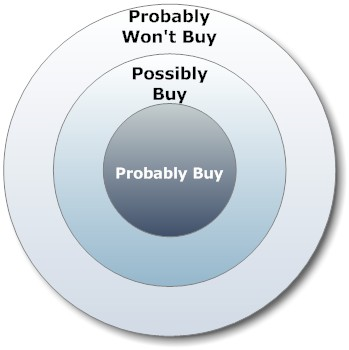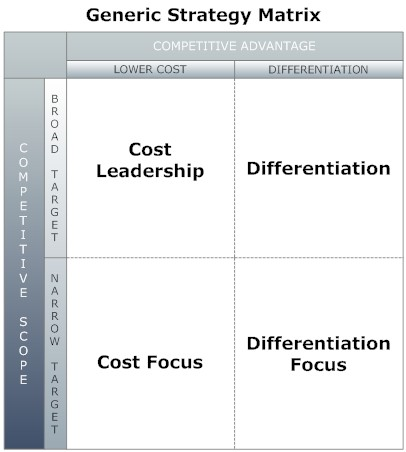Blog: The Competitive Advantages of Small Businesses
The ways small businesses can gain competitive advantages
Cherie Semper is a Business Growth Broker at Cheshire and Warrington Growth Hub, before joining the team, Cherie worked with a wide range of companies from multinationals, SMEs and third sector firms.
In this blog, Cherie outlines some of the ways small businesses can gain a competitive advantage over their larger counterparts.
In my experience, put simply there are four main reasons SMEs can gain a competitive advantage from larger firms:
1. The ability to niche and differentiate.
2. The ability to move with speed.
3. The closer relationship, trust and intimacy with customers.
4. The closer, relationship, trust and involvement of the team of employees.
1. The Competitive Advantage For A Small Business In Niching
Niching or bullseye marketing lets you develop a particular solution for a particular group of customers with a tightly defined problem to solve. The closer to the customer’s bullseye solution your offering is, the more likely the customer will be convinced to buy. It is like using a rifle instead of a shot gun to generate business.

This is much easier to do in a small business which can prosper in a small niche while a bigger business may need volume that only comes from several market niches.
While bigger businesses can operate in multiple niches, it increases the complexity of the business, reduces focus and increases costs. Competing across several niches may force larger businesses to make compromises in what they offer, forcing their products away from the bullseye.
There are only two main ways to create a competitive advantage and that’s by either having a cost advantage or by differentiating your products and services in ways that are meaningful to your target customers.

(Porter, 1985)
The diagram above is the summary of the generic strategies from Michael Porter and his classic strategy book Competitive Strategy. Businesses that fail to choose risk being “stuck in the middle.”
Niche marketing and differentiation are related concepts and rely on you accurately matching the key success factors of suppliers and customers.
2. The Competitive Advantage That Comes From Speed
Speed is good in business for a number of reasons.Speed in supplying customers and helping customers to get the benefits of what you sell is a major advantage which is often of vital importance for buyers. We live in the age of “I want it now”.
Speed of decision is also vital. I used to work with corporates but there always seemed to be somebody with a reason to delay taking action – another approval stage, another presentation to a committee, the wait to do it out of next year’s budget… Much of it ultimately was nonsense and involved people playing with office politics.
This has been a tough year and all indications are that they are going to get tougher as a recession bites. The huge increase in personal and public debt that has been the underlying growth for the last 20 years needs to first be stopped and then repaid. Austerity is likely to be the theme for many years as we see the effects of the artificial bubble.
In these situations the speed to start, to stop, to do more or to do less will make a huge difference in performance. These are management judgements where facts and decisions have to be closely interlinked. Big businesses with long chains of command and company policies will struggle to adapt quickly to what is happening. The smaller businesses who have the right management information to make speedy decisions and implement those decisions quickly are likely to do well.
3. The Competitive Advantage For A Small Business In Closer Customer Relationships
Work with a small business and you’re talking directly to the owner and chief decision maker or someone who is close to them.
You can have more faith that they will do what they promise and if they don’t, you have an easy channel to follow to get things fixed.
But deal with big businesses and it’s very different. I hate it when I have to deal with my bank or any utility and go through call centre hell, explaining the problem to person after person. It’s extremely frustrating and time-consuming and where possible, I will choose to work with a small business.
4. The Competitive Advantage For A Small Business In Closer Employee Relationships
Unless you work as a one man band – you will rely on your staff to attract, convert and keep customers.
Small businesses have a huge advantage in being able to create a strong connection between the business owner and the employees and with a clear focus on the purpose of the business. In a small business, staff feel more involved in what is happening but in a big business, they normally feel isolated.
This makes it much easier to develop themes and high customer service standards in a small business. The staff feel happier, customers feel happier and you feel happier.
Ultimately, Most Big Businesses Used To Be Small Businesses
Getting bigger is usually the reward for success. If a small business performs well, then it will usually grow but as it gets bigger, it may be losing the very factors that made it successful.
That’s why I like business owners to focus on profit rather than turnover. There’s an old saying – sales is vanity, profit is sanity – and it’s very true. You just have to look at the dreadful results of many acquisitions to see that getting bigger is often an illusion for getting better. There are always challenges to business growth but, forearmed is forewarned.
If you want support in developing your competitive advantage and growing your small business contact Cheshire and Warrington Growth Hub

 Growth Hub
Growth Hub